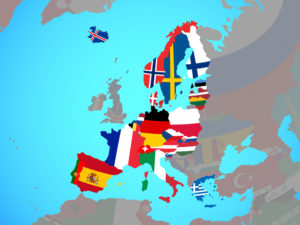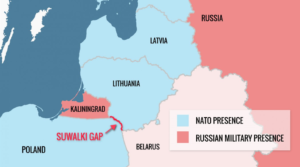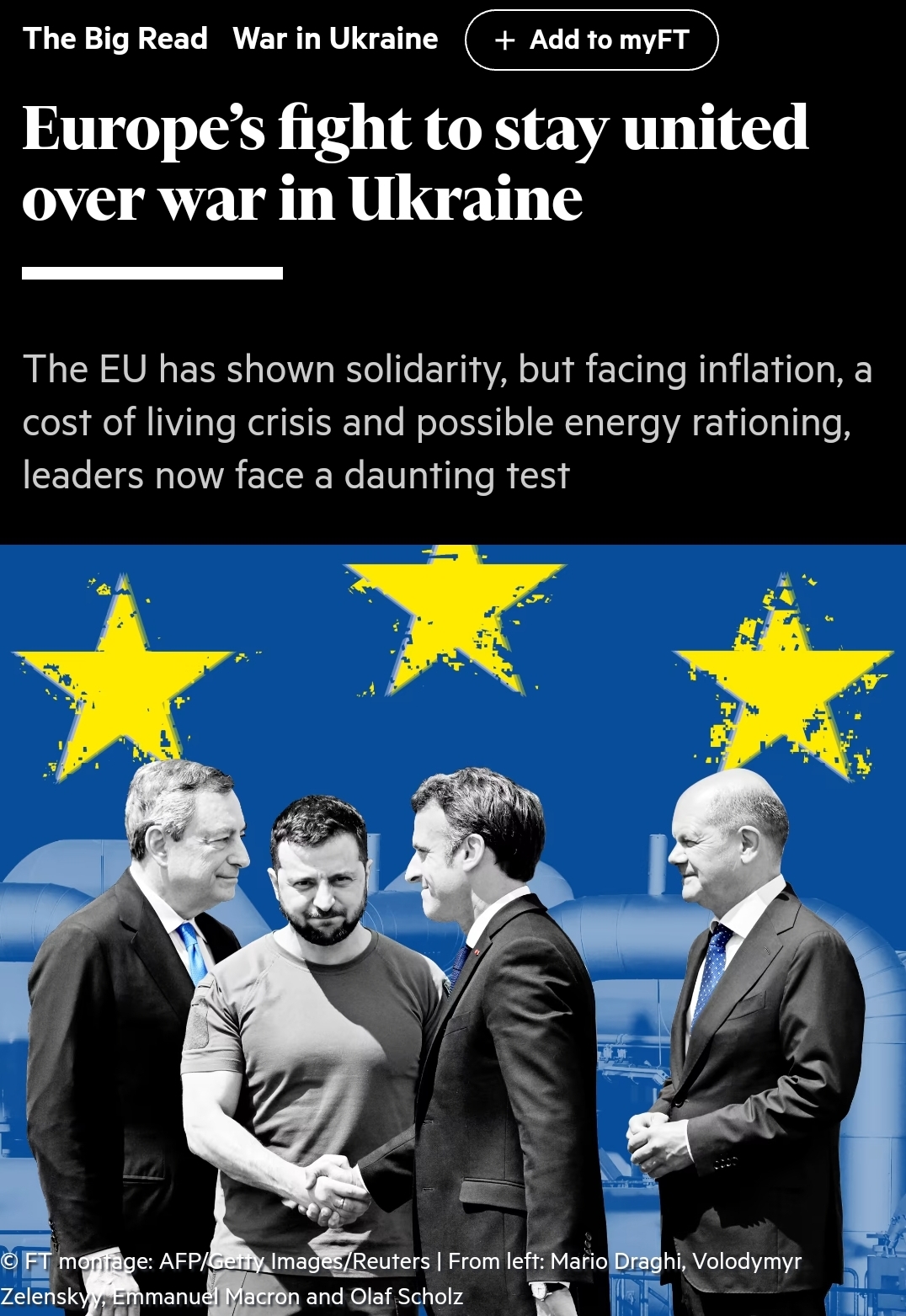On 28 July, US President Joe Biden issued a statement marking the centenary of diplomatic relations between the United States and Estonia, Latvia, and Lithuania. Referencing the fifty-year period of Soviet occupation, which the nations endured during the twentieth century, the White House affirmed that Washington “has always stood by the legitimate governments of these three countries.”
Renewing Washington’s solidarity with the region, the statement underlined the present threat menacing Europe’s eastern flank:
With sovereignty and territorial integrity in Europe once more under assault, we are united with our Allies and partners to defend freedom, democracy, and security. The United States stands shoulder-to-shoulder with Estonia, Latvia, and Lithuania to counter Russia’s brutal and unprovoked war on Ukraine and to hold Russia accountable. Few know better what is at stake.
In an interview with Lithuania’s LRT RADIO marking the occasion, US ambassador Robert S. Gilchrist cited the Welles Declaration, a document issued by the US State Department in 1940 which condemned and refused to recognize the Soviet annexation of the Baltic states.
Under the provisions of the Declaration, the three nations were able to maintain Stateside diplomatic missions, which Gilchrist explained, affirmed democratic values and “was an inspiration for Lithuanians and for Estonians and Latvians throughout those fifty years.”
Concurrently, the presidents of the three nations issued a join letter of gratitude to Washington while reaffirming their commitment to Ukraine:
For the Baltics, independence was not a gift; we had to defend it on the battlefield. We know that freedom, sovereignty, and independence are priceless. So do the Ukrainians. We wish to thank the United States of America for their efforts to ensure that the US stands with Ukraine, together with its Allies and partners.
The end of the “tripwire strategy”
This US-Baltic solidarity has formed the cornerstone of the region’s defense structure within the NATO alliance. Previously, NATO’s “enhanced forward presence” in eastern European countries relied on deployments of forces stationed at bases without extensive support infrastructure.
This “tripwire” strategy entailed having a few thousand troops positioned along Russia’s border, which would alert central command should an incursion into NATO’s eastern flank occur. These troops would, theoretically, hold the enemy at bay until reinforcements arrived.
RELATED: NATO’s new Strategic Concept gives short shrift to Eastern Neighborhood and Ukraine
Yet the Ukrainian war has revealed the fragility of this strategy. While the resistance of a 44-million-strong Ukrainian citizenry forestalled the seizure of Kyiv, the Baltics cannot access such manpower to repel a Russian onslaught.
Prior to the NATO summit in June, Estonian Prime Minister Kaja Kallas explained Tallinn’s anxiety:
“If you compare the sizes of Ukraine and the Baltic countries, it would mean the complete destruction of countries and our culture…[it] would all be wiped off the map, including our people, our nation.”
The necessity of in-country forces has also been emphasized by other politicians aside from Kallas.
British Defense Minister Ben Wallace insisted that near-instantaneous troop deployment in the region was crucial, since
“what we just witnessed in Ukraine was that if you wait five days, there’s no one left alive.”
“By that stage,” he stated, “there will be no Estonia.”
Martin Herem, the commander of the Estonian Defense Forces, bluntly stated that NATO’s response had been far too weak in its defense structure in the past. Explaining that as “the Kremlin’s threshold for aggression has fallen ever lower” over the last three decades, western forces have failed to counter that aggression with the appropriate reciprocal force. NATO, he insisted, needed
“a fundamental shift in approach: we need to move from deterrence by punishment to deterrence by denial. In other words, we must be ready to prevent Russia taking a single inch of NATO territory, rather than simply trying to reconquer occupied enclaves.”
Sir Richard Shirreff, a former NATO deputy supreme allied commander, openly doubted the ability of the alliance to even reconquer fallen allied territory, concluding,
Baltic states grow frustrated with West’s war balancing act Click To Tweet“There is no way NATO would be able to recapture the Baltic states without mounting an operation of the scale of D-day plus, frankly.”
NATO high alert forces increased to 300,000
The NATO Summit in Madrid at the end of June dispensed with the tripwire policy and established a new strategic concept, with the alliance announcing an increase of its forces placed on readiness high alert from 40,000 to 300,000.
The US military also committed new rotational deployments to the Baltic region, with American troops now totaling more than 100,000 service members on the European continent.
Eastern-flank battle groups are led by larger-member militaries:
- the US in Poland,
- Germany in Lithuania,
- Canada in Latvia,
- the U.K. in Estonia.
In June, Germany stated that it would supply 3,500 additional troops to Lithuania’s defense, while the U.K. has likewise announced plans to permanently expand their existing battlegroup deployment in Estonia with an augmented allocation of around 3,000 troops, thereby increasing the force to brigade strength.
In a recent interview with Estonian newspaper Postimees, Prime Minister Kallas stated that the establishment of a command structure of a division-sized unit on Estonian soil was a necessary deterrence against Moscow.
“It will have our own units in its composition,” she explained, “as well as the allied units deployed here and allied units in their homeland that will be ready to deploy here immediately to defend us.”
Following NATO’s revised strategic concept, bilateral allegiances along the eastern front have also been strengthened.
On 21 July, the Defense Ministers of Lithuania and Estonia issued a press release detailing the countries’ commitment to an enhanced Baltic defense agreement, provisions which include capacity planning and joint procurement coordination.
These arrangements also prepare for long-term logistical commitments already in discussion for the NATO summit, which will be held in Vilnius in 2023.
A week later, on 28 July, the Armed Forces of Lithuania and Portugal announced that they were working together to bolster military ties, renewing bilateral cooperation stretching back to a defense agreement signed in 2002.
Antonio Silva Ribeiro, Chief of General Staff of the Portuguese Armed Forces, stressed the solidarity of Lisbon with its eastern allies.
“Although Portugal is the westernmost country (in Europe),” he explained, “our presence in countries like here and in Romania demonstrates our equality in our Alliance and our commitment to peace and security.”
The Baltic battle with Schengen
Yet contrary to these military and defensive developments, politically and diplomatically, the Baltics have been at the forefront of controversy in recent weeks.
On 31 July, following the shelling of a detention center in Donetsk, Latvian Foreign Minister Edgars Rinkevics called for Brussels to enact an EU-wide ban on issuing tourist visas to Russian nationals.
It is a move that all three Baltic countries—as well as other E.U. member states such as Poland, Denmark, the Czech Republic, the Netherlands, and Norway—have already enacted, but due to the freedom-of-movement tenets of the 1985 Schengen Agreement, travelers may pass unimpeded through the 26 countries within the border-free zone.
Lauri Läänemets, the Estonian Minister of the Interior, recently insisted that this issue must be dealt with by Brussels:
“We share Schengen space, meaning that people holding other countries’ visas can come to Estonia and often use it as a transit country,” he explained.

Latvian broadcaster LSM has reported that it was informed by the country’s State Security Service that Riga is addressing this concern by ensuring that travelers crossing into Latvia from Russia or Belarus face “increased scrutiny” at border checkpoints.
The suspension of visas and the enactment of travel bans on Russian citizens by E.U. member states has angered Moscow, with the spokesperson for the Russian Ministry of Foreign Affairs labeling Estonia a “dictatorship” after Tallinn placed five-year entry bans on members of a Russian pop group.
The Estonian Minister of Foreign Affairs retorted that the country had no tolerance for war-sympathizers:
“Tourism and leisure trips for Russian nationals are not warranted, particularly hosting Russian artists who visit regions in Ukraine that have been occupied by Russia and perform concerts in support of the occupiers.”
Similar five-year entry bans have also been placed on other Russian artists, and Tallinn has also ceased issuing student visas to Russian nationals. It has also enacted employment restrictions on Russian and Belarussian workers carrying visas issued through other E.U. countries.
The weakness of Kaliningrad

Further contentiousness with Brussels occurred after Russia threatened Europe’s eastern flank following Vilnius’s institution of sanctions on the transit of specific goods (including iron, cement, and steel) from Moscow to the province of Kaliningrad beginning on 17 June.
As these goods travel through Lithuania, the nation enforced the EU-wide sanctions, which had been unanimously agreed upon by all 27 member states.
According to Russia’s foreign ministry, the sanctions covered approximately 50% of what Kaliningrad imports and Moscow promised that the consequences would be “serious” for the “Lithuanian population.”
Though Lithuania’s Customs Department explained that the country “did not impose any unilateral, individual or additional restrictions on this [Russian] transit,” in mid-July, the European Commission backtracked and revised its sanctions guidelines.
Effective immediately, Russian entities were henceforth permitted to transport EU-restricted goods by rail, though the shipping of these goods by road was still restricted, as was the transport of military technology and dual-use items by either road or rail.
Daniel Ferrie, the European Commission spokesman, has stringently denied claims made by Russian media that the new guidelines were made in negotiation with Moscow.
According to an analysis piece published by the Centre for Eastern Studies, the muted reaction from leading politicians in Vilnius following Brussels’s announcement indicated that Lithuania had not been part of the Commission’s discussions.
The article points out that the E.U.’s reversal has negatively impacted Lithuania’s domestic politics as well, with opposition parties citing the Kaliningrad transit debacle as evidence of a failing foreign policy. Threats of a Parliamentary confidence vote were openly discussed.
RELATED: Putin using Kaliningrad exactly the way Hitler did when it was called East Prussia, Skobov says
Lithuania’s Foreign Minister, Gabrielius Landsbergis, made his displeasure with the new guidelines known by announcing that
“Lithuania never asked for additional clarifications [on the sanctions]. I believed and continue to believe that the first clarification was adequate, it was clear, and that was enough.”
Kaliningrad, the most dangerous place on Earth
Kaliningrad – previously Königsberg, a territory belonging to Prussia/Germany for seven hundred years (though it existed as a Polish fiefdom in the fifteenth and sixteenth centuries) – was seized by Stalin in 1945 and remains a key geographic location.
As the only ice-free port on the Baltic Sea held in Russian control, the strategic importance of the 86-square-mile enclave ensures that the Suwalki Gap—the narrow strip of land running between Poland and Lithuania which connects Kaliningrad to Belarus—has long been considered a weak point in western defense structures.
Politico entitled a recently-published article on the corridor, “The most dangerous place on Earth”, and according to Baltic security officials, Russia’s military exercises include simulations of the Suwalki Gap’s closure and invasions of Lithuania.
Issues over Kaliningrad and the Gap remain unresolved, however, and many analysts and critics envision that the next theater of conflict spilling over from Ukraine will occur there. Russia has already been shoring up its command of the territory.
A report released on 29 July by the Lithuanian National Radio and Television stated that Russia is “erasing Lithuanian traces from Kaliningrad,” including closing schools and removing public plaques celebrating Lithuanian writers.
Moscow has also shut down the Lithuanian Language Association. In an interview on LRT TV, Sigitas Šamborskis, the chairman of the Lithuanian community of Kaliningrad, decried the action, insisting that the
“Lithuanian Language Association has been de-registered by a court decision, and everything that has been created over 30 years is being destroyed at the behest of the special services.”
A Trans-Atlantic dance
While remaining on high-alert militarily, the Baltics walk a fine line politically as they balance the diplomatic intricacies of broader western alliances.
While the US has denounced the Russian invasion in no uncertain terms, in action, Washington has at times displayed a decided circumspection, from refusing support for establishing a NATO no-fly zone over Ukraine to the State Department’s resistance to categorizing Russia a state sponsor of terrorism.
(This has led to a US governmental split; on 28 July, the House of Representatives introduced a bill seeking to apply the label to Russia, following the Senate’s unanimous passage of a non-binding resolution calling on Secretary of State Antony Blinken to make the designation official).
Concern over provoking further retaliation from the Kremlin, especially on a nuclear level, has influenced much of Washington’s decision-making.
In his LRT RADIO interview, ambassador Gilchrist was directly asked about Washington’s (and Berlin’s) reported involvement with the European Commission’s decision to reverse the sanctions placed on goods transiting to Kaliningrad.
Explaining that many viewed the move as “a betrayal of Lithuania and a concession made to Moscow,” the interviewer pushed Gilchrist to clarify the US’s position regarding the reversal.
Flatly rejecting the turnaround as a betrayal, Gilchrist asserted that
“the US State Department states strong support for our Lithuanian allies and appreciation to the Commission for clarifying the guidelines on implementing the E.U. sanctions.”
Focusing upon what he termed the “broader objective,” the ambassador reiterated that the ultimate goal was to enact an operative sanctions regime that both “erodes the military capacity of Russia, particularly with regard to Ukraine [and] sends a strong signal to Russia.”
“We support clarity for Lithuania in knowing how to implement sanctions,” he concluded opaquely.
Addressing the Lithuanian Parliament regarding the Commission’s reversal, Foreign Minister Landsbergis underscored that while strengthening sanctions against Russia remains the region’s top priority, the
“second and equally important ambition is to preserve trans-Atlantic unity, which is key for the security of all of us here.”
Zapad 2021 suggests, in event of war, Moscow could seize Baltics but lose Kaliningrad
Landbergis did not elaborate on the specifics of the unity Vilnius is attempting to preserve, but according to an article published at the end of July by The Baltic Times, US military experts are scheduled to arrive in Latvia in August in order to advise Latvia’s military command on the construction of a new military base and training ground in the country.
As this base would host NATO troops, the need for the region to maintain solidarity with allied forces is paramount.
In the recent 30/31 July Weekend Edition of the Financial Times, the F.T. Big Read analysis essay pictured a photo of Ukrainian President Zelenskyy meeting assembled European leaders above the headline, “Europe’s fight to stay united over war in Ukraine.”

For the Baltic states on Russia’s border, that realpolitik unity recalls a half-century when the Welles Declaration offered the slim yet inextinguishable hope of a free, independent, and democratic future.
Whether it is centered in Brussels or Washington, unity is something with which those nations dare not gamble; as President Biden admitted, few know better what is at stake.
RELATED:
- NATO’s new Strategic Concept gives short shrift to Eastern Neighborhood and Ukraine
- Putin using Kaliningrad exactly the way Hitler did when it was called East Prussia, Skobov says
- Garry Kasparov: If Putin’s nuclear blackmail works against Ukraine, he will use it next in Poland or Estonia
- Zapad 2021 suggests, in event of war, Moscow could seize Baltics but lose Kaliningrad




